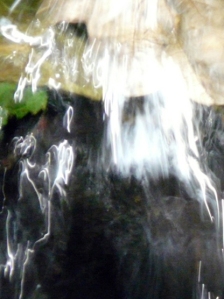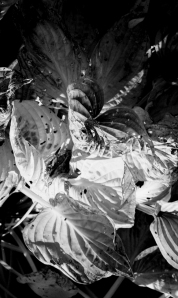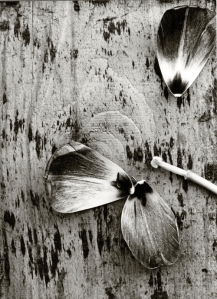Aged 14, my confidence and love for writing was shattered by a teacher. She praised a brilliant essay – mine – based on a painting of our choice. The romantic image of a Carl Spitzweg painting I picked had freed my imagination. After reading my essay out in front of the class, the teacher stated it was unlikely the pupil had written this herself and she therefore had to disqualify the work. I was pushed off a flying carpet, too speechless and humiliated to protest. My creative writing went underground. I wrote poetry, in secret.
Images inspire me, they tell stories. Photography came to my rescue, not so much in the sense of recording concrete reality, but more in the sense of sub-creating it. Light attracted as liquid poetry that fell through shadows and sculpted fleeting life. I discovered my knack for framing the essence of a story. And in the spaces between things I looked for something transient emanating from other spheres. There were moments in my life when finding words for these other dimensions became imperative, like, for example, when working as still photographer on a film-set at the shore of the Red Sea. In poems like ‘Riverhead’ and ‘Sleepless Sun’ I tried to encapsulate such instances: https://courseofmirrors.wordpress.com/poems/
Photography started out with a process of reversal – getting the positive print from a negative film – which is being superseded by digital bit-structured data, leading us into new metaphors for time and space. The tiny window of the laptop I’m writing this text on has become my interior sanctuary. The window of its screen frames worlds well beyond my garden – microcosms and macrocosms. My grandparents would have called this feat magic, which it is, of course. Computers have become our second brains, compilers and recorders of our imagination, easy to share.
In search for the invisible hand that animates the unseen, I remember coming upon the technique of frottage by Max Ernst. He was intrigued by the reversal of textures achieved when rubbing surfaces with a soft pencil – be it weathered wooden planks, bark, textiles, netting … For Ernst the results evoked superimposed images and visionary associations.
Not only artists find surprises in the textures of surfaces. Who does not occasionally pause before a weathered wall, lichen-covered gravestone, the grain in a wooden plank, a windswept cloud, a reflection in glass or water, or detect resemblances and fresh arrangements in the shape of cliffs or in the veins of plants? Unexpected patterns call for unfurling, inspire a collage, a scientific idea, a poem, a story, or painting.
We rub off impressions from the ambience around us, especially first impressions – scents and sounds, tactile sensations, patterns of light and shadow, textures, colours and shapes, anything that attracts or repels us.
In a psychological sense, we rub off qualities we find in each other – in parents, siblings, friends, strangers and public figures we admire or despise. From what impresses us we extrapolate and find recurring resemblances. As our imagination sparks random associations involving all of our senses, a theme becomes reflected in our heart, as in a mirror, and informs our personal myth.
It’s what my novels are about, which, I hope, will also have a universal appeal.
Among related posts:
https://courseofmirrors.wordpress.com/2012/05/25/pattern-which-connects/
https://courseofmirrors.wordpress.com/2013/10/07/patterns-of-eternity-humbly-opens-your-mind/
Most of the photos on this site are mine. A selection can be found here: http://500px.com/ashen





Beautiful images – how often has a teacher closed off one avenue (unforgivably) only for the creative soul to find another outlet. thanks for sharing this – Diane
LikeLike
Thanks D.:) Sometimes the straight path is strewn with obstacles. I was diverted and walked through the woods.
LikeLike
The frottage, inversions, reality behind appearances, inevitably touches on the immortal and universal. This is a lovely declaration from a writer about the generative and inspirational, and the thread that linked photography to painting and hence to images in words. How to shape what is not evident by the shadow it casts on what is.
Your story about your teacher not very different from a recent reaction to the endorsements behind my book. He said ‘Obviously if Koestler and Lorenz endorsed it, ( as you claim) it would have been published. People are merely kind in letters, in ways they never would have stood by publicly, otherwise it would have been published in 1970’ The implication of fraud is the reflection of incredulity, and says more about the commentator than the work in question, but it is desperately unkind and destructive.
LikeLike
Frustrating as obstructions are, I wouldn’t exchange any straight road for my uncharted journey. You’re touching on this mystery – what is not evident is nevertheless generative and inspirational.That your book emerged is proof of the other dimensions so many stumble into and have as yet no words for.
LikeLike
Ashen, just reading your account of creative writing as a student reminded me of my own really positive experience with the teacher I was fortunate to have. Luck plays its part on this craggy journey.
Touched by your need to express through writing, you explained this with such empathy and I could actually feel what you were writing. The need to write down an expression is so much at the forefront of human existence.
‘Rubbing’ is an interesting process and thanks for re-kindling this age old process.
I enjoyed your description of photographs as a kind of link or a negative to the positive viewing process. You really do make things look so different in the way you describe them and yet it is logical. One wonders what we have been seeing at times when an entirely new way of looking at things is exposed. As I write this I am completely frustrated to find the words and phrases that would normally come, you have enlightened me and created a dissonance within that will feed me.Thankyou Ashen. B
LikeLike
Thanks, B. I’m glad my post re-kindled the frottage process for you.
It’s one of the wonders of the internet to find resonance from an artist across the oceans. It seems the significant gear-changers in our lives are both obstruction and good luck. I had lucky breaks too, like being carried on a high wave as photographer, but this writing business kept nagging me until I tackled it, eventually. I’m a slow developer. I know from my early times in the darkroom that when an image is well exposed, it will slowly saturate in all its black, white and grey-tones. Very satisfying. Must catch up with you posts later today. Just glimpsed your love for ‘getting hopelessy lost.’ 🙂 This chimes.
LikeLike
Nothing is what it seems, everything is what we make it, and nothing looks the same to two people. What a lot of possibilities!
LikeLike
I agree, Jane. And all these worlds interacting. It’s scary and beautiful.
LikeLike
I too find inspiration in nature’s seeming order and pattern for fiction. Obviously, the grains in wood are right there, if you choose to see them, and yet everyone will see differently! Perception–endlessly fascinating 🙂
LikeLike
Of course – you appreciate the quality of wood, such a great title for your novel. I’m in love with wood, the unique grain of each tree, the one-and-only charm each item made of it holds. I knew someone who collected roots and planks. Every wall in his big room was stacked with pieces of wood. The warmth of summer brought out the various scents. He and his friends got high on it. In a way, writers are carpenters, shaping and joining words.
LikeLike
Great memoirist post, Ashen, a collage of sources. Interesting the idea of a collage of personality, rubbing against and from, reading the grains that tell a story.
LikeLike
It’s a wondrous crowd we have inside. The grain of each of us must be a kind of code in the psyche that can potentially be resurrected from memory.
LikeLike
Yes, of course my crowd seems usually unusually unruly, given to unrest and civil commotion, dare I say, riot. And I often wonder, which one of you belongs to that poem! I’m in disavowal! And then I hear this underground thumping noise, like the Morlocks in The Time Machine (the original), that machinery, the industrial revolution of the soul. And I’ve no idea which one of us just wrote that! But I’m sure we should just ignore it and go on to the next post!
LikeLike
Ha, ha, the riot of that inner crowd … my virtuous ones tend to feel disenfranchised, wearied by the thumping onslaught of efficiency, rules, regulations … Yesterday I was surprised. A kind man stepped up unbidden and helped me top up air in the tires of my car. More, on the spot he found a lucky penny and handed it to me. Flashes of peace happen.
LikeLike
Flashes of peace – gifts.
LikeLike
I’m constantly inspired by nature and images too, I think we’re probably both very visual people. But images and being in a natural landscape can stir allsorts of emotions and dreams and unlock a vast sea of imagination. I’m so sorry about your experiences with that teacher. To be honest, I fell into teaching myself, but I always promised myself to become the opposite of what I had witnessed. I had some truly dreadful teachers growing up who did the same to me. If I wrote or drew something very good, was accused of having help in doing it, it really eroded my confidence and stopped me from sharing my ideas with others. Luckily not all teachers are like that, but the bad ones can have a profoundly negative effect on the lives they touch and those effects can last a life-time. I’m SO pleased you kept writing sweetie and kept pursuing those dreams. 🙂 xx
LikeLike
Thanks Sophie. Early attacks on something we feel passionate about strike deep. I had times when I found it difficult to trust positive feedback until I learned to value my passion. With gentle persistence it’s possible to develop good expectations. We’re lucky. In your case, I think, your dragon has guarded your treasures.
LikeLike
Lol, thank you sweetie. Yes, I often think that teachers are far to complacent about the power they wield over young minds, they really do have the power to encourage or destroy children’s dreams. 😦
LikeLike
This happened to my son. He wrote a paper on Bill Gates in high school and was accused of plagarism. He was able to prove he wrote it and his sources and got the teacher to apologize, but the sting of the injustice remains….. The teacher retired that year. Ugh!
LikeLike
Hi Cindy, thanks for visiting and browsing my posts here. I liked your site, and the peaceful atmosphere your photographs evoke.
The human psyche is as fragile as it is resourceful. When an injustice silences us we battle on, one way or another, all part of polishing the heart.
LikeLike